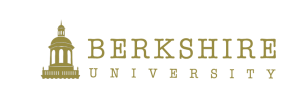Bachelor of Science in Biotechnology
The Bachelor of Science in Biotechnology program trains students in many disciplines including genetics, biochemistry and molecular biology and prepares them for entry into health sciences and analytical / research laboratories. Graduates possess the skills to perform laboratory tests using standardized laboratory procedures.
Graduates of the program will have completed the prerequisites necessary to be successful in graduate programs in the sciences. However, a Bachelor of Science in Biotechnology can also be a terminal program for individuals who wish to work in laboratory settings and other occupations.
Program Objectives
The following objectives are designed to meet BSU mission and its objectives.
- To develop critical thinkers who are capable of meeting the evolving needs of the biotechnology field.
- To prepare students for successful entry into professional and/or related graduate programs.
- To develop students analytical skills and laboratory techniques routinely applied in scientific research.
- To develop students written and verbal competencies, enabling them to formulate concise and accurate reports of experimental work.
- To develop students capable of using the scientific methods to design experimental studies and statistically analyze the results.
- To develop biotechnology professionals who practice within a legal, ethical framework.
- To develop students through the integration of content relating to current concepts of life sciences, physical sciences, and interdisciplinary studies.
Program Outline
To receive a Bachelor of Science in Biotechnology, students must earn 129 credit hours. Program requirements are as follows:
| Biotechnology Major Courses ( 52.0 credit hours ) | |
| Biochemistry I | 3.0 credit hours |
| Biochemistry II | 3.0 credit hours |
| Genetics | 3.0 credit hours |
| Genetics Laboratory | 1.0 credit hours |
| Molecular Biology I | 3.0 credit hours |
| Molecular Cell Biology Laboratory | 1.0 credit hours |
| Molecular Biology II | 3.0 credit hours |
| Microbiology | 4.0 credit hours |
| Microbiology Laboratory | 1.0 credit hours |
| Molecular Immunology | 3.0 credit hours |
| Immunology Laboratory | 1.0 credit hours |
| Microbial Metabolism | 3.0 credit hours |
| Methods in Biotechnology | 4.0 credit hours |
| Molecular Biotechnology | 3.0 credit hours |
| Quantitative Biological Methods | 4.0 credit hours |
| Bioinformatics | 3.0 credit hours |
| Experimental Molecular Biology | 3.0 credit hours |
| Foundation of Bio-Imaging Science | 3.0 credit hours |
| Upper Division General Education Courses ( 9.0 credit hours ) | |
| Health Law and Ethics | 3.0 credit hours |
| Writing for the Technical Professional | 3.0 credit hours |
| Critical Thinking | 3.0 credit hours |
Lower Division General Education Courses ( 31.0 credit hours )



